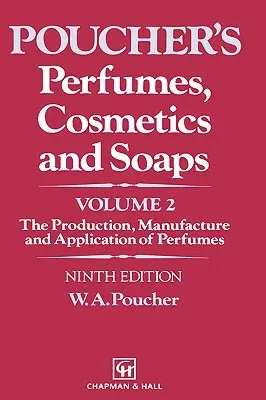W a Poucher
(Author)Perfumes, Cosmetics and Soaps: Volume II the Production, Manufacture and Application of Perfumes (1993)Hardcover - 1993, 31 October 1992

Qty
1
Turbo
Ships in 2 - 3 days
In Stock
Free Delivery
Cash on Delivery
15 Days
Free Returns
Secure Checkout

Part of Series
Population and Community Biology (Chapman & Hall)
Print Length
379 pages
Language
English
Publisher
Springer
Date Published
31 Oct 1992
ISBN-10
0412273500
ISBN-13
9780412273506
Description
Product Details
Author:
Book Edition:
1993
Book Format:
Hardcover
Country of Origin:
US
Date Published:
31 October 1992
Dimensions:
23.39 x
15.6 x
2.24 cm
ISBN-10:
0412273500
ISBN-13:
9780412273506
Language:
English
Location:
Dordrecht
Pages:
379
Publisher:
Weight:
730.28 gm